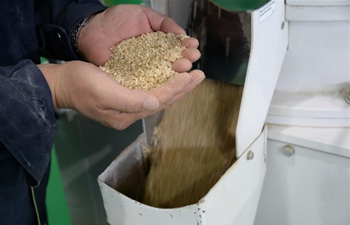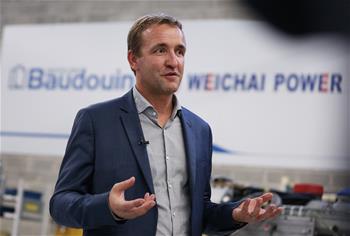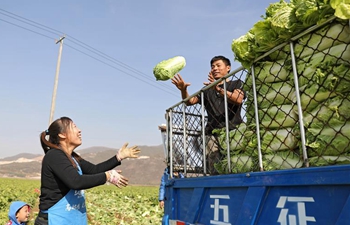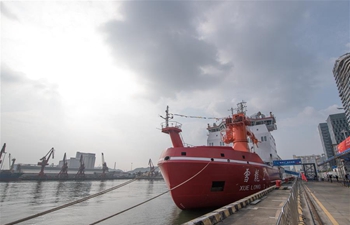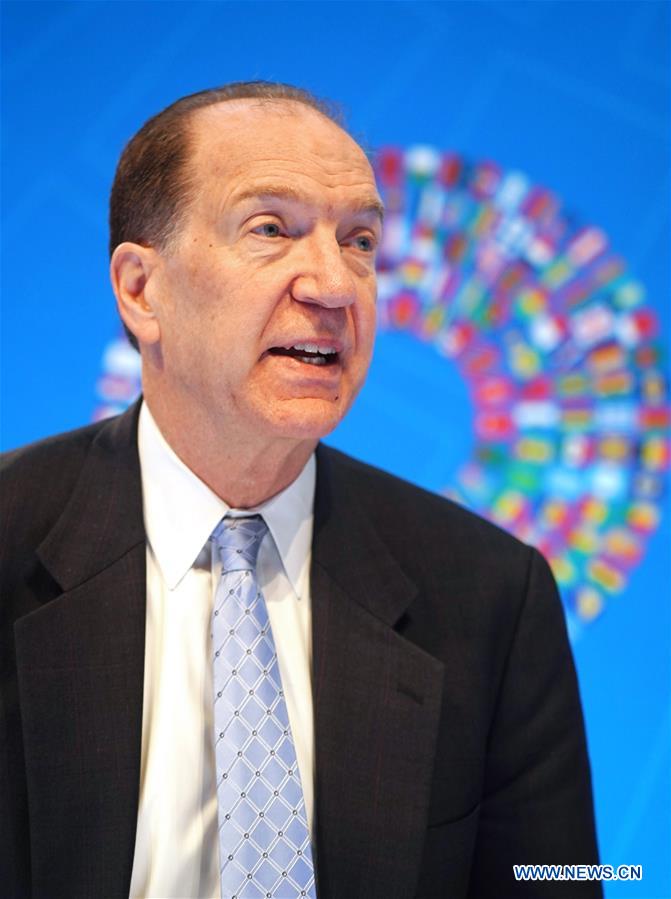
World Bank President David Malpass speaks during a press conference in Washington Oct. 17, 2019. Allowing market to play a bigger role in China's economy in the past few decades has led to a "dramatic development" that pulled hundreds of millions of people out of poverty, said the World Bank chief on Thursday, which marks the International Day for the Eradication of Poverty. (Xinhua/Liu Jie)
WASHINGTON, Oct. 17 (Xinhua) -- Allowing market to play a bigger role in China's economy in the past few decades has led to a "dramatic development" that pulled hundreds of millions of people out of poverty, said World Bank President David Malpass on Thursday, which marks the International Day for the Eradication of Poverty.
Malpass made the remarks in response to a question from Xinhua at the opening press conference of the 2019 annual meetings for the World Bank and the International Monetary Fund (IMF).
"If I take a step back, all the way into the 1970s, China made a dramatic set of steps forward, in terms of allowing market pricing for agricultural products, and to allowing the market to make some of the decisions, where investments are made," said the World Bank chief, who noted that it was a dramatic development that pulled literally hundreds of millions of people out of poverty.
"The result was China becoming more and more engaged and intertwined with the world economy, with global supply chains in a way that was positive for China and was very important in poverty alleviation in China," Malpass said.
Since its founding in 1949, the People's Republic of China has lifted more than 800 million people out of poverty, which represent over 70 percent of global poverty reduction. Beijing has also promised to wipe out extreme poverty by 2020, ten years earlier than the deadline set by the United Nations (UN) in its 2030 Agenda for Sustainable Development and its 17 Sustainable Development Goals (SDG).
The World Bank chief called on the country to continue market-oriented reforms, to strengthen rule of law, to boost the competitiveness of state owned enterprises, which are important to China's economic development and further poverty reduction in the country.
Noting that the World Bank's 40-year relationship with China is "evolving" toward new types of interaction, Malpass said China will be lending less from the International Bank for Reconstruction and Development (IBRD), which lends to governments of middle-income and creditworthy low-income countries, and the World Bank offers a lot of technical assistance with China as it thinks about its interaction with the world system.
In his opening remarks at the press conference, Malpass said the backdrop of slow global growth, sluggish investment, soft manufacturing activity, weakening trade, and beyond make the World Bank's goals of reducing extreme poverty and boosting shared prosperity "even harder," adding that about 700 million people worldwide still live in extreme poverty.
Broad-based growth, however, is still possible, Malpass said. "With the right mix of policies and structural reforms, countries can unleash growth that's broadly shared across all segments of society," he said.
The World Bank chief also highlighted the importance of education, noting that his organization is launching a new approach to measure learning, which is called "learning poverty" and looks at the percentage of 10-year-olds who cannot read and understand a simple story. The World Bank aims to cut by at least half the global rate of "learning poverty" by 2030.




